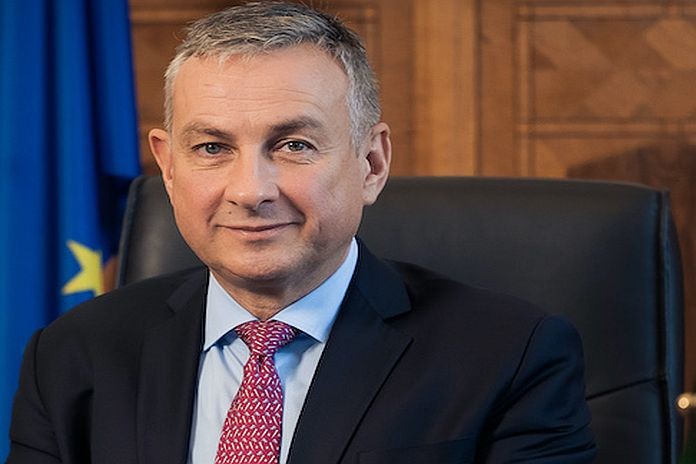BRUSSELS, Belgium – EU energy ministers reached a political agreement on a proposal for a Council Regulation to address high energy prices. The regulation introduces common measures to reduce electricity demand and to collect and redistribute the energy sector’s surplus revenues to final customers.
We live in exceptional times and are working in an exceptionally fast, coordinated and solidary manner to form a united front against Russia’s continuous weaponizing of energy supplies. The agreement reached today will bring relief to European citizens and companies. Member states will flatten the curve of electricity demand during peak hours, which will have a direct positive effect on prices. Member states will redistribute surplus profits from the energy sector to those who are struggling to pay their bills. ~ Jozef Síkela, Czech minister of industry and trade.
Electricity demand reduction
The Council agreed to a voluntary overall reduction target of 10% of gross electricity consumption and a mandatory reduction target of 5 percent of the electricity consumption in peak hours. Member states will identify 10 percent of their peak hours between 1 December 2022 and 31 March 2023 during which they will reduce the demand. Member states will be free to choose the appropriate measures to reduce consumption for both targets in this period.
Cap on market revenues for inframarginals
The Council agreed to cap the market revenues at 180 euros/MWh for electricity generators, including intermediaries, that use so-called inframarginal technologies to produce electricity, such as renewables, nuclear and lignite. Such operators have made unexpectedly large financial gains over the past months, without their operational costs increasing. This is because of the role of coal and gas as price-setting marginal sources that currently inflate the final price of electricity.
The level of the cap is designed to preserve the profitability of the operators and avoid hindering investments in renewable energies.
Member states agreed to use measures of their choice to collect and redirect the surplus revenues towards supporting and protecting final electricity customers. Member states introduced some flexibilities to reflect their national circumstances and the measures in place at national level. These include the possibility to set a higher revenue cap, use measures that further limit market revenues, differentiate between technologies, and to apply limits to market revenues of other actors including traders, among other things.
In situations where a member state’s net import dependence is equal or higher than 100%, they shall conclude an agreement by 1 December 2022 to share the surplus revenues adequately with the exporting member state. Other member states are also invited to conclude such agreements.
Solidarity levy for fossil fuel sector
Member states agreed to set a mandatory temporary solidarity contribution on the profits of businesses active in the crude petroleum, natural gas, coal, and refinery sectors. The solidarity contribution would be calculated on taxable profits, as determined under national tax rules in the fiscal year starting in 2022 and/or in 2023, which are above a 20 percent increase of the average yearly taxable profits since 2018. The solidarity contribution will apply in addition to regular taxes and levies applicable in member states.
Member states can keep national measures that are equivalent to the solidarity levy provided they are compatible with the objectives of the regulation and generate at least comparable proceeds.
Member states will use proceeds from the solidarity contribution to provide financial support to households and companies and to mitigate the effects of high retail electricity prices.
Retail measures for SMEs
The Council agreed that member states may temporarily set a price for the supply of electricity to small and medium-sized enterprises to further support SMEs struggling with high energy prices. Member states also agreed they may exceptionally and temporarily set a price for the supply of electricity which is below cost.





